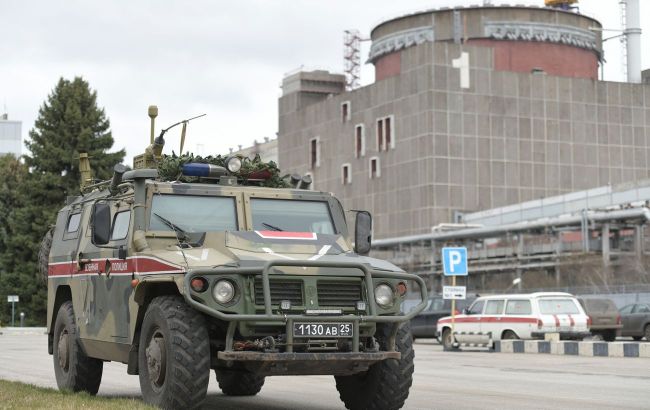Russians prepare new provocation at Zaporizhzhia NPP - General Staff
 Photo: the General Staff of the Armed Forces warned of possible provocations by Russians at the ZNPP (Getty Images)
Photo: the General Staff of the Armed Forces warned of possible provocations by Russians at the ZNPP (Getty Images)
Russian occupiers prepare another provocation at Zaporizhzhia nuclear power plant. Invaders might blame Ukraine, according to the General Staff of Ukraine on Facebook.
According to Ukrainian intelligence, Russian terrorists may carry out another provocation under false flag.
"Russia is the only terrorist in the world holding a nuclear power plant hostage and using it to blackmail Ukraine and the entire world. No one else but Russian terrorists has brought the world so close to the brink of a deliberate radiation catastrophe," the General Staff stated.
In just the past week, Russians have attempted multiple times to shift blame onto Ukraine for using drones to attack ZNPP.
"These are deliberate Russian actions, continuing the Russian practice of blackmailing our state and the entire international community with the risk of a catastrophe at Zaporizhzhia nuclear power plant. Ukraine has always taken, and continues to take, a responsible approach to the safety of nuclear facilities. Only the return of ZNPP under Ukraine's control can restore real safety to the plant," the statement reads.
The General Staff of the Armed Forces of Ukraine adds that the security of ZNPP cannot be guaranteed as long as Russian troops remain stationed there.
ZNPP situation
ZNPP is the largest nuclear power plant in Europe, located in the city of Energodar, Zaporizhzhia region. The plant was occupied by Russians at the beginning of the full-scale invasion in 2022. Occupiers installed military equipment at the plant.
During the war and occupation, Zaporizhzhia NPP has been disconnected from the lines connecting it to the Ukrainian power grid multiple times. Experts note that this poses a threat not only to Ukraine but also to Russia and European countries.
ZNPP has placed all reactors in a "cold shutdown" state. On April 13, the last unit was transitioned to this state. The Ministry of Energy explained that this is crucial to prevent a nuclear catastrophe.

